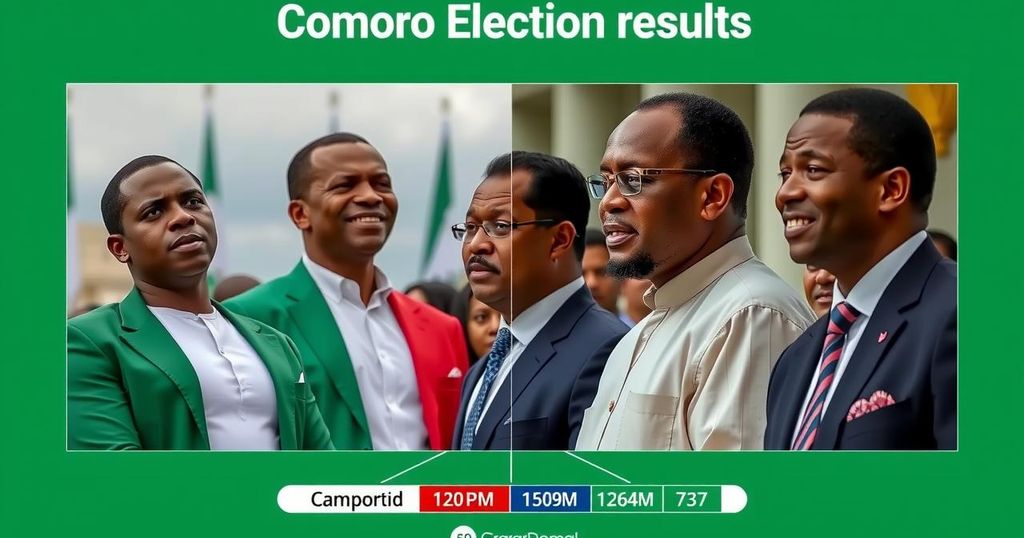Comoros’ Ruling Party Secures Parliamentary Majority in Recent Elections

The ruling Convention for the Renewal of the Comoros party has won 28 of 33 parliamentary seats, maintaining its majority in Comoros. The election witnessed boycotts from some opposition parties, who have accused the ruling party of electoral fraud. President Azali Assoumani has been in power since 1999, navigating a controversial political landscape marked by coups and constitutional changes.
In the recent parliamentary elections in Comoros, the ruling Convention for the Renewal of the Comoros (CRC) party has secured a significant victory, winning 28 out of 33 parliamentary seats. This outcome ensures that President Azali Assoumani’s party retains its governing majority in the Indian Ocean archipelago. The election results, announced by the electoral commission, are pending confirmation from the Supreme Court. However, the election faced opposition boycotts, stemming from prior allegations of electoral misconduct against the CRC.
Comoros, comprising three islands located off the eastern coast of Africa near Madagascar, has a tumultuous political history characterized by numerous military coups since its independence from France in 1975. President Azali Assoumani, who initially seized power in 1999, has maintained control through several elections, including a notable victory in 2016. The political landscape is marked by Assoumani’s controversial constitutional changes in 2018, which enabled him to bypass term limits and continue his presidency amidst previous agreements regarding the rotation of leadership among the islands.
The ruling party’s substantial win in Comoros’ parliamentary elections underscores a continuation of President Assoumani’s influence in the region. Despite facing boycotts from opposition factions and previous allegations of electoral fraud, the CRC’s dominance appears secure as the electoral commission’s results await judicial confirmation. The evolving political landscape within Comoros reflects longstanding complexities in governance and democratic processes.
Original Source: www.seattletimes.com







